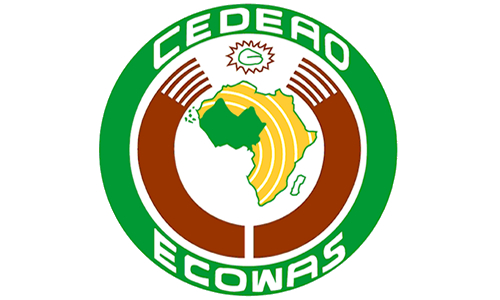
A High-Level Seminar on Maritime Security which examined and refined the modalities for the distribution of essential maritime security equipment in the ECOWAS riparian countries have ended in Abuja, Nigeria.
The two-day seminar was held at the Nigeria Commission of the Economic Community of West African States (ECOWAS) in Abuja, Nigeria was organized in the framework of the Support Project for Integrated Maritime Security in West Africa (SWAIMS), funded by the European Union.
ECOWAS document made available to the Ghana News Agency in Tema indicated that a total of 30 Rigid Hull Boats (RHIBs) would be distributed to help ECOWAS coastal Member States against Maritime Insecurity.
Colonel Abdourahmane Dieng, the Head of ECOWAS’ Regional Security Division charged ministerial departments and other organizations, that participated in the seminar, to cement modalities to work together to eliminate the maritime threats that weighed on the ECOWAS community.
He also added that “there can be no development without security, and no security without development”. This concerns both the maritime domain and the continent.
“Turning the tide against maritime insecurity is a collaborative effort that no single country or region can tackle alone,” he said.
Col. Dieng said ECOWAS, in conjunction with the Economic Community of Central African States (ECCAS), formulated the Yaoundé Code of Conduct as a foundation for broad-based regional maritime security along the entire Gulf of Guinea.
He stressed however that the security partnership goes beyond Africa, embracing the European Union (EU) and other key international players geographically outside the Gulf of Guinea because the Gulf is of global importance as a crucial international maritime route.
Ambassador Nicolas Berlanga Martinez, the EU Senior Coordinator for the Gulf of Guinea, “The EU is a committed partner to the Gulf of Guinea region and will continue to provide extensive and targeted assistance to strengthen the critical features of the Yaoundé security architecture, further cementing the long-standing relationship between ECOWAS and the EU”.
Among these efforts is the EU-funded ECOWAS project tagged SWAIMS, a collaborative, complex, multi-component, regional initiative implemented by various partners, and covering all 15 ECOWAS countries.
SWAIMS helped in organizing the high-level maritime security seminar which was attended by representatives from the 12 coastal ECOWAS countries: Benin, Cabo Verde, Côte d’Ivoire, The Gambia, Ghana, Guinea-Bissau, Guinea-Conakry, Liberia, Nigeria, Sierra Leone, Senegal, and Togo.
Other participants included officials from the Ministries of Defence (mostly the Navy), Transport (mostly Maritime Agencies) and Foreign Affairs.
Source: GNA























